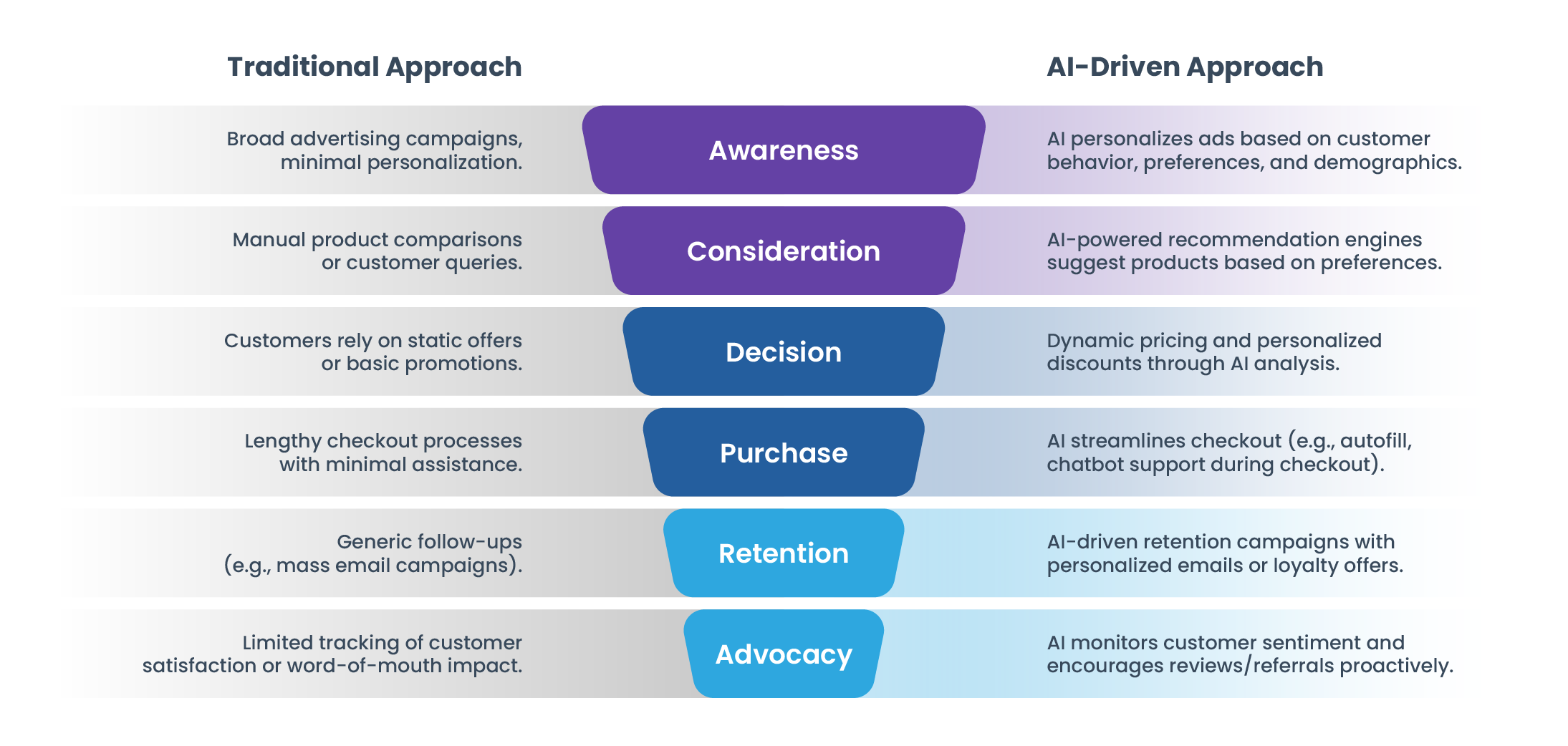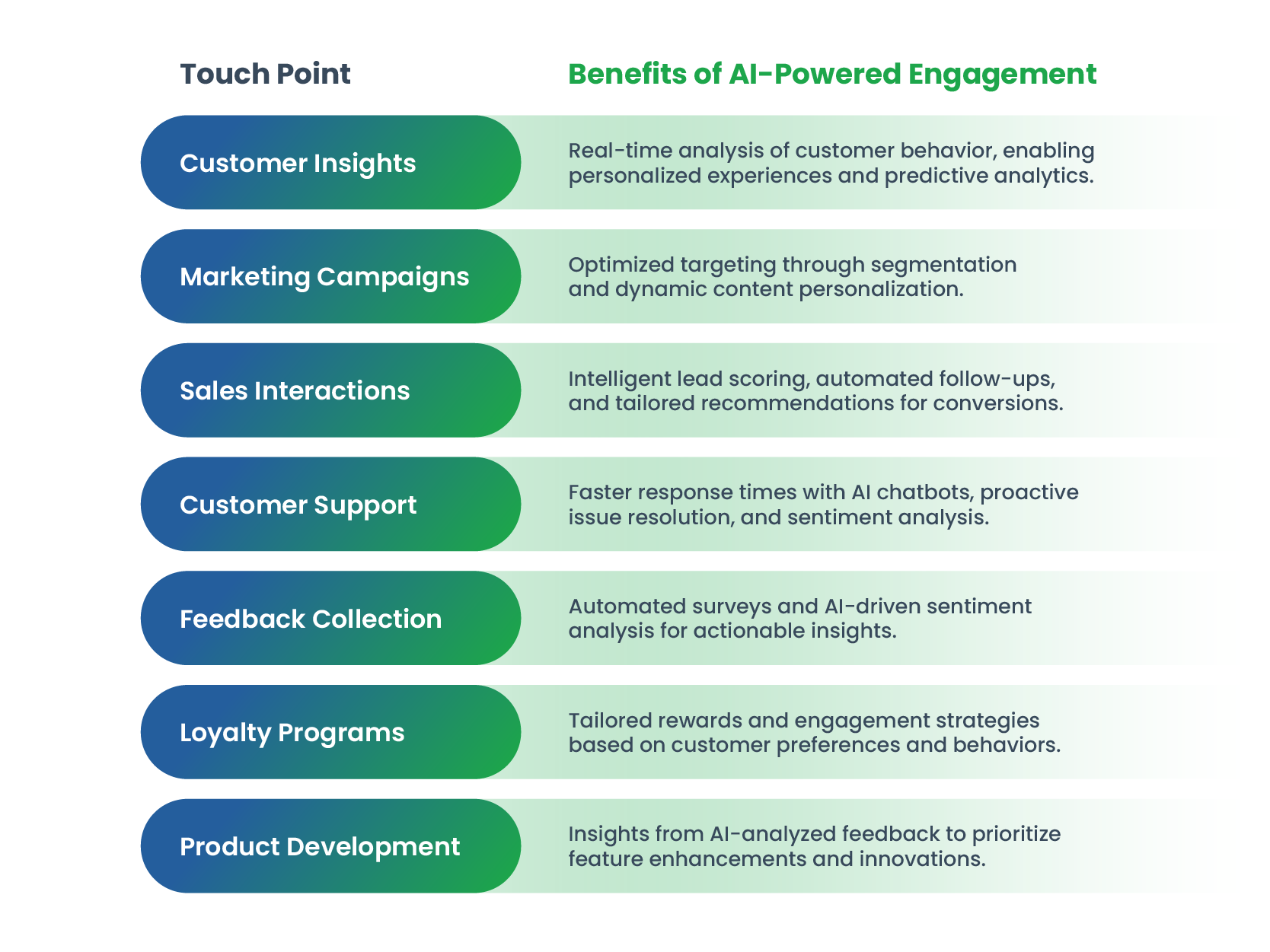The customer journey has experienced a remarkable transformation in the era of artificial intelligence (AI). With personalized recommendations and automated chatbots, AI has redefined how businesses interact with customers. It enables companies to anticipate needs, resolve issues more quickly, and create seamless experiences at every touchpoint. As technology advances, AI’s role in shaping customer expectations and behaviors becomes increasingly significant. In this article, we’ll explore how AI is revolutionizing the customer journey and reshaping the future of customer engagement.

Mapping customer journey touchpoints with AI transforms engagement by providing data-driven insights and personalized interactions. AI analyzes customer behavior across various channels, identifying key touchpoints such as website visits, social media interactions, email responses, and in-store experiences. Machine learning algorithms predict customer needs by examining patterns, allowing for proactive engagement through tailored recommendations and offers.
AI-powered tools, like sentiment analysis and chatbots, enhance communication at each touchpoint, delivering timely and relevant support. Predictive analytics optimize the customer journey by identifying potential drop-off points and offering actionable solutions for customer retention. Integrating AI into CRM systems ensures a seamless flow of data, creating a comprehensive view of the customer journey.
By leveraging AI to map and refine touchpoints, businesses can build deeper connections, improve customer satisfaction, and drive loyalty, ultimately transforming the customer journey into a personalized and engaging experience.

Implementing AI for customer journey mapping presents several challenges.
Firstly, data quality and availability are critical, as AI models require vast amounts of accurate, diverse, and real-time customer data. Fragmented data across multiple platforms can hinder effectiveness.
Secondly, interpreting complex customer behaviors and emotions is still challenging for AI, especially when dealing with unstructured data like text and voice. Privacy and compliance concerns add complexity, with evolving regulations like GDPR requiring robust data protection measures.
Additionally, there’s a risk of over-reliance on AI insights, potentially overlooking human intuition and creativity. Finally, integration with existing systems can be technically demanding, requiring substantial investment in infrastructure and skilled personnel. Addressing these challenges involves a strategic approach combining technology, human expertise, and ethical practices.
The future of AI in customer engagement promises to be transformative, focusing on delivering hyper-personalized and seamless experiences throughout the customer journey. AI will enhance predictive analytics, enabling businesses to anticipate customer needs and provide proactive solutions. Chatbots and virtual assistants will become more conversational and context-aware, ensuring real-time support and personalized interactions. Additionally, AI-driven sentiment analysis will allow brands to understand emotional cues and tailor their communications effectively.
Furthermore, AI will facilitate dynamic customer journey mapping by analyzing real-time data from various touchpoints and optimizing engagement strategies at the moment. Automation will streamline repetitive tasks, allowing human agents to concentrate on more complex problem-solving. As voice interfaces and augmented reality technology continue to evolve, AI will integrate these innovations to create immersive and intuitive experiences. However, deploying AI ethically, ensuring transparency, and maintaining trust will be crucial as businesses strive to balance innovation with a customer-centric approach.
Call to Action for Businesses:
Key Businesses Leveraging AI:
Adopting AI ensures businesses stay competitive while enhancing customer satisfaction and loyalty.